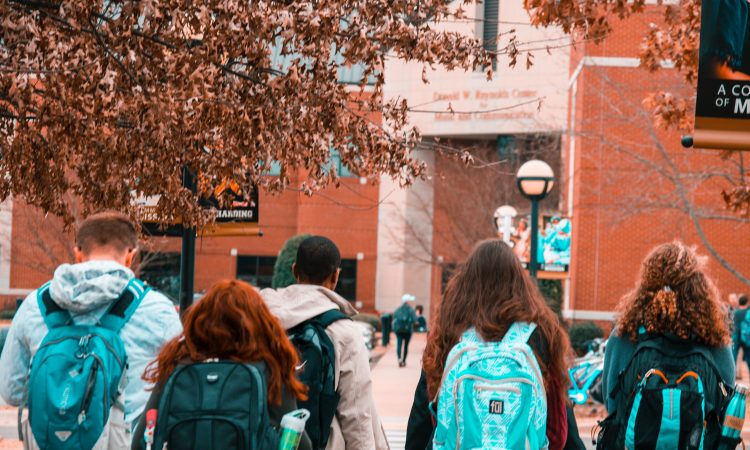Help them discover their greatness
“What makes you different?” “What are your talents?” “What are your values?” Answering these questions can help students start a powerful narrative about who they are and what they can accomplish.
The creation of this narrative will be instrumental for students to succeed in the future of work. Instead of organizations owning career progression, graduates will be asked to rely on themselves to navigate a complex landscape of work opportunities. The ability to establish, articulate and continuously update a compelling story about who they are and what they can do will help them navigate the many transitions they will face throughout their career.
Move them away from job titles
During the summer, most students were probably asked the following question: “What do you want to be when you grow up?” Unfortunately, this question perpetuates the myth that they will be just one thing: one profession or one job title.
The analysis of trends on the future of work paints a very different picture. What is much more likely is that they will work on several different challenges, problems and opportunities over the course of their lives.
Help them discover challenges, problems and opportunities
During their recent summer activities, students were likely exposed to people and institutions working on solving various challenges. One role educators can play is to help students see these work opportunities through a new light, so that they can understand more deeply what they are about.
For example, a student may have gone to the hospital after breaking their arm, allowing them to experience first-hand how hospitals work. A role you can play in this example is to help them identify some of the challenges, problems and opportunities that exist in the health-care system, discover which ones might create a spark for the student and have conversations about them.
Connect learning to desires
Once students have a better sense of the problems the want they want to work on, we can help them make the connection between what they are learning in school and the life they want to lead afterward.
One question that highlights this connection is: “How are your classes, school activities or sports helping you get closer to your goals?” Once students can answer this question for themselves, they will understand the connection between their learning and their desired future, making them more engaged and motivated to succeed.
Keep exploring
Sareena Hopkins, Executive Director of the Canadian Career Development Foundation, recommends that young students prioritize the exploration of different careers, instead of focusing on choosing just one. “Explore, explore, explore. Classroom learning is important, but so is getting out of the classroom to experience first-hand the realities of different kinds of work and workplaces,” says Hopkins.
“Talk to people already working in areas that interest you, job shadow them or offer to volunteer a few hours for an organization that intrigues you. Don’t wait until you’ve already accumulated post-secondary debt to find out whether an area of work is a good fit for you – try it on for size now.”
The exploration that Hopkins recommends can begin in the classroom, through conversations with teachers and peers about the steps required to start this process.
The back-to-school transition brings about a unique and wonderful opportunity for students to convert their energy into reflection and purpose. By catalyzing this conversion, you can play an important role in setting students up for success for their school year, and more importantly, for their future.
This article was originally published on ContactPoint on Aug. 15, 2018.








[…] We’ve heard about your desire for reliable labour market information and helpful advice to prepare clients/students – and yourself – for the future of work. We continue to see strong interest in interview advice […]
[…] labour market information and helpful advice to prepare clients/students – and career professionals […]